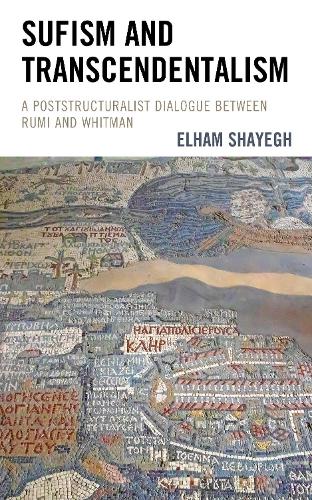
Sufism and Transcendentalism: A Poststructuralist Dialogue Between Rumi and Whitman
(Hardback)
Publishing Details
Sufism and Transcendentalism: A Poststructuralist Dialogue Between Rumi and Whitman
By (Author) Elham Shayegh
Bloomsbury Publishing PLC
Lexington Books
9th March 2020
United States
Classifications
Professional and Scholarly
Non Fiction
Islamic groups: Sufis
Western philosophy from c 1800
891.5511
Physical Properties
Hardback
140
Width 160mm, Height 231mm, Spine 17mm
381g
Description
The rhetoric of cultural identity generally goes in two potential directions: One a universal line that insists on an overall pattern of integration and harmony among all peoples regardless of their differences, and the other a line which suggests that various cultures are so specific and different that they will eventually enter into clash, violence and war. Drawing upon Derrida's concept of differance, I will point out that such rhetoric as examples of current political discourses fail to open the concept of cultural identity through redefining its relationship with otherness. This will be accompanied by poetry of Rumi and Whitman to suggest that their literary language through its non-dialectic characteristics is familiar with the problematic of identity and has the ability to form a cross-cultural dialogue. Sufism And Transcendentalism envisages the possibility of dialogue against the background of political conflict.
Reviews
Taking her cue from Derridas writing about diffrance and hospitality, Elham Shayegh presents an enlightening comparative reading of the poetry of Rumi and Whitman, in order to model a less reified relationship between self and other than the one that tosses up rhetoricfrom all sidesabout a clash of civilizations. This is a hopeful book that deserves a readership in these difficult times. -- Keith Tuma, professor of English at Miami University, editor of Miami University Press
Author Bio
Elham Shayegh is associate professor of English at the American University of Armenia.
